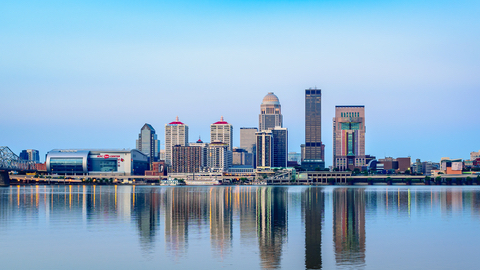
Maybe They Can Help You Solve Yours
Cities experience problems differently. Some metros face natural disasters while others must manage blighted properties. While no one wants to celebrate calamity, it does foster a sense of resiliency (which seems to be everyone’s favorite word these days).
Entrepreneurs and creative thinkers are often the first to spot how to turn an issue into an opportunity. And it turns out that where you live – or where you solve problems – does matter. Those cities that encourage entrepreneurship, that make it easy to bridge the gap between city hall and startup land are becoming locations for unique approaches. This is especially true during COVID-19.
Here are a few handpicked young companies that were recently honored as finalists in the 7th Annual Smart Cities Startup Challenge.
CASPER Security monitors abandoned properties
If there is a fire involving two or more buildings in Louisville, KY, there is a 50/50 chance that there is a vacant building involved. This struck a team of civic hackers as a problem worth solving and so they created a suite of sensors to detect dangerous events like smoke, break-ins and floods by tracking changes in area temperature, humidity, motion, noise, etc. Neighbors are alerted along with emergency services, decreasing the likelihood of catastrophe. With more than 17 million vacant homes in America, it would be easy to see how a problem detected in Louisville could be applied to abandoned properties across the U.S.
CITIBOT helps cities and residents communicate
Born in Charleston County, SC, Citibot is creating conversations between the people who live in cities and the people who run them. In place of layers of bureaucracy, a website maze or wasting time on hold, Citibot enables America’s first interactive software system that lets residents text questions or requests to their city government. Citbot makes everything from trash pickup schedule questions to pothole reporting much easier. Zooming up to the big picture, this fast-response technology could be an important step towards people feeling more connected to their city government.
Umanity connects those who need things with people who have things to give
Created out of a desire to help those affected by Hurricane Harvey, this Houston-based startup recently ramped up its online platform to serve so many affected by COVID-19. This ‘philanthropic supply chain tool’, believes that people want to work together but lack the connected technology to solve the coordination problem.
Co-Founder Ryan-Alexander Thomas credits Houston’s spirit and burgeoning tech scene as assets on the entrepreneurial journey. “Houston is the perfect place to increase resilience. There is already that spirit in the City of Houston. There are people here who want to help and who want to do great things.”
One thing to notice is that these startups solving real problems are not the product of the traditional entrepreneur epicenters. Louisville, Charleston, Houston are all cities respectively known for baseball, charm and energy – but their startup scenes have been slower to emerge.
This may actually play into a strength from a civic problem solving perspective. Ambitious and inventive residents are addressing real problems – and the rest of the country stands to benefit.
Startups create new approaches and they also create jobs – about 2.6 million of them according to the 2016 Census Bureau’s Business Dynamics Statistics. So following the logic trail, bolstering the startup ecosystem in those cities that aren’t traditionally celebrated for that scene serves to create new and creative solutions that could scale while also creating much-needed jobs. Sounds like a good place to start
So how do we make it happen? Heartland Forward recently published some advice:
- Improve attitudes toward entrepreneurs.
- Enable deal makers.
- Promote early stage risk capital networks.
- Establish and fund entrepreneurial support organizations.
- Link in corporations.
- Employ new real estate and service provider models.
- Demand university entrepreneurial engagement.
- Position government as a central hub for entrepreneurial resources.
- Build and enhance quality of place and amenities.
So what happens next? Well, that is up to you. You could dig deeper on these startups and the other Smart Cities Startup Challenge Finalists, and then see how you can begin putting pieces in place to support the entrepreneurial ecosystem in your own community. The next city solutions could be just waiting to be discovered in a town near you.